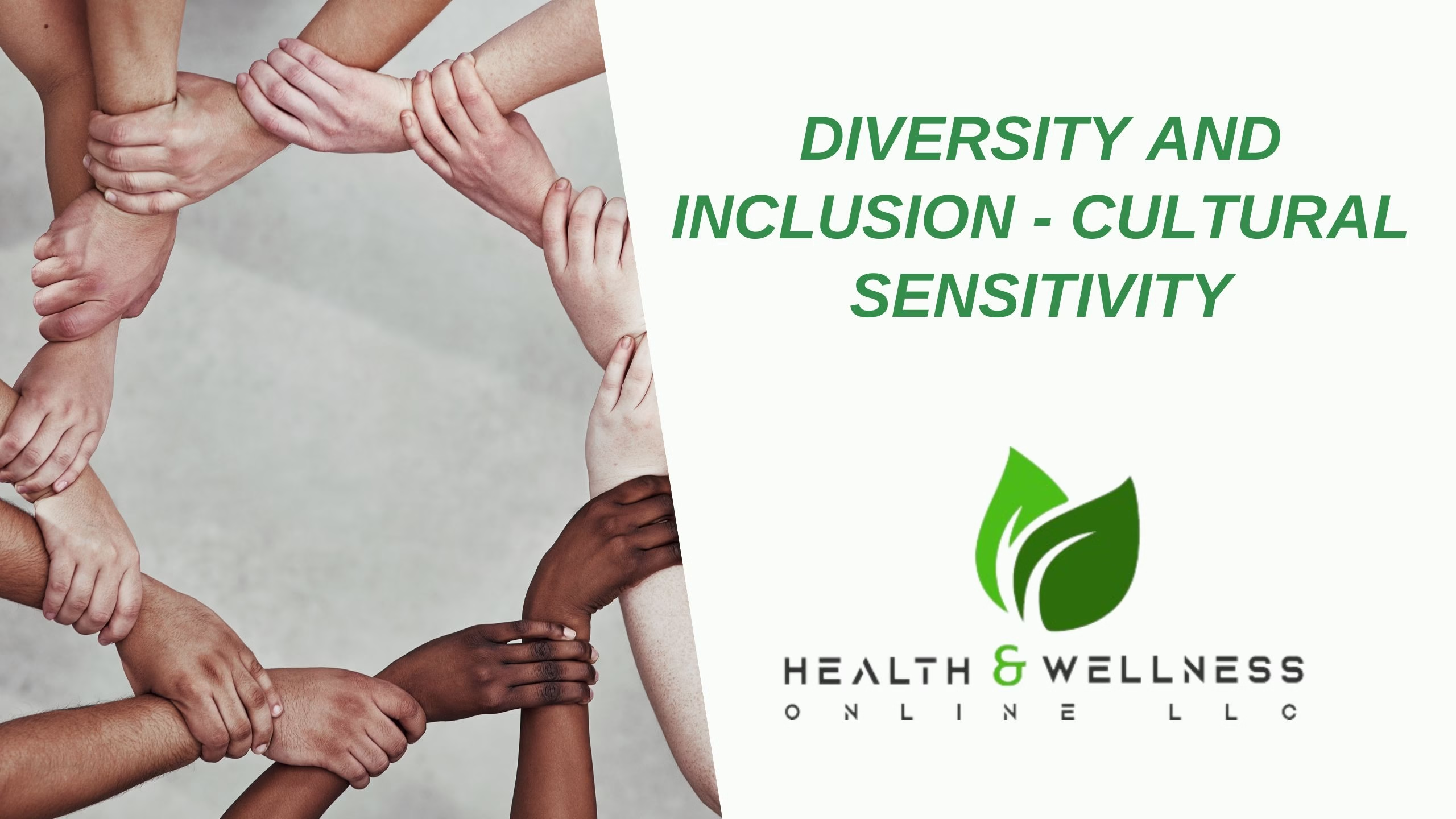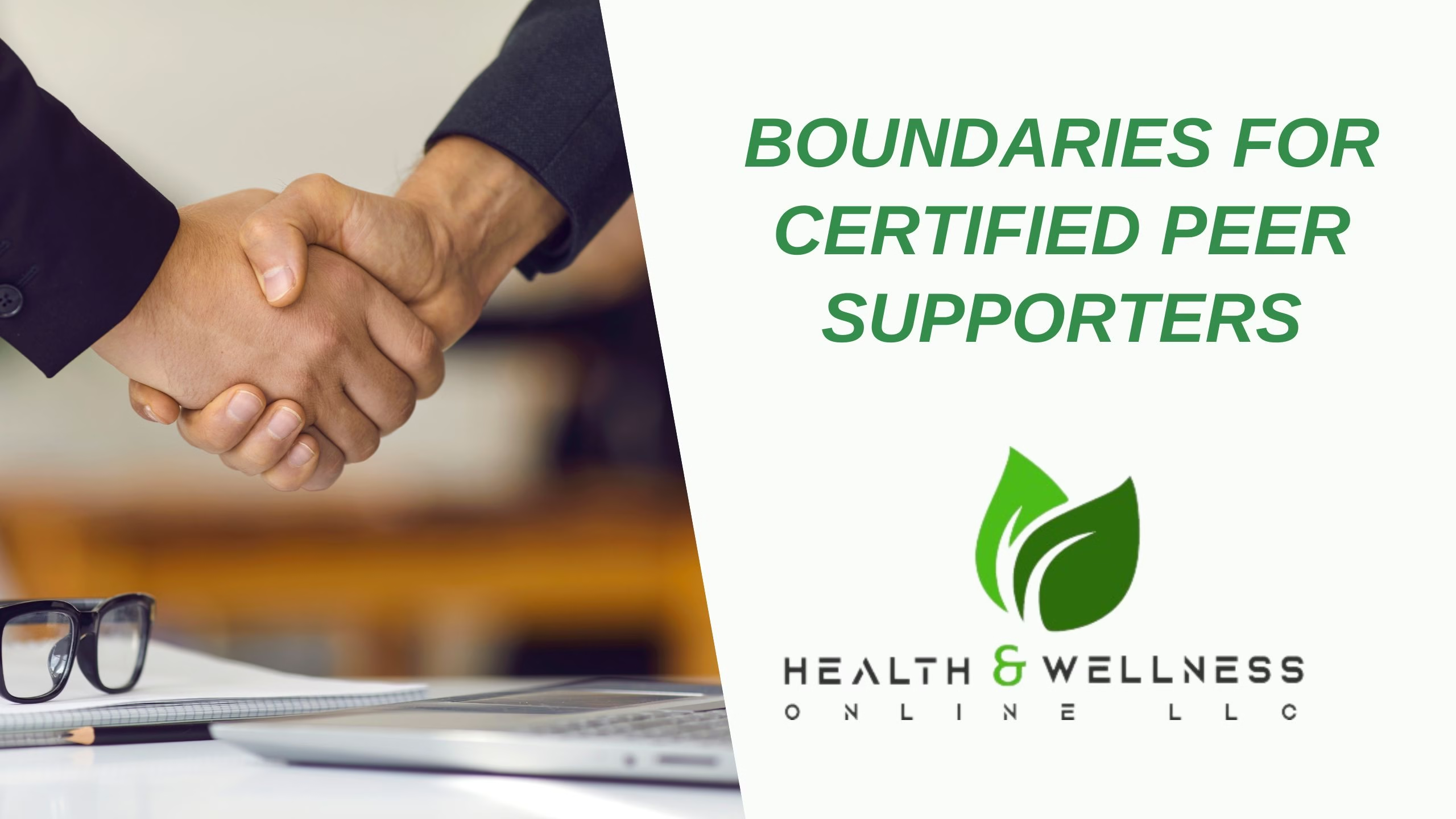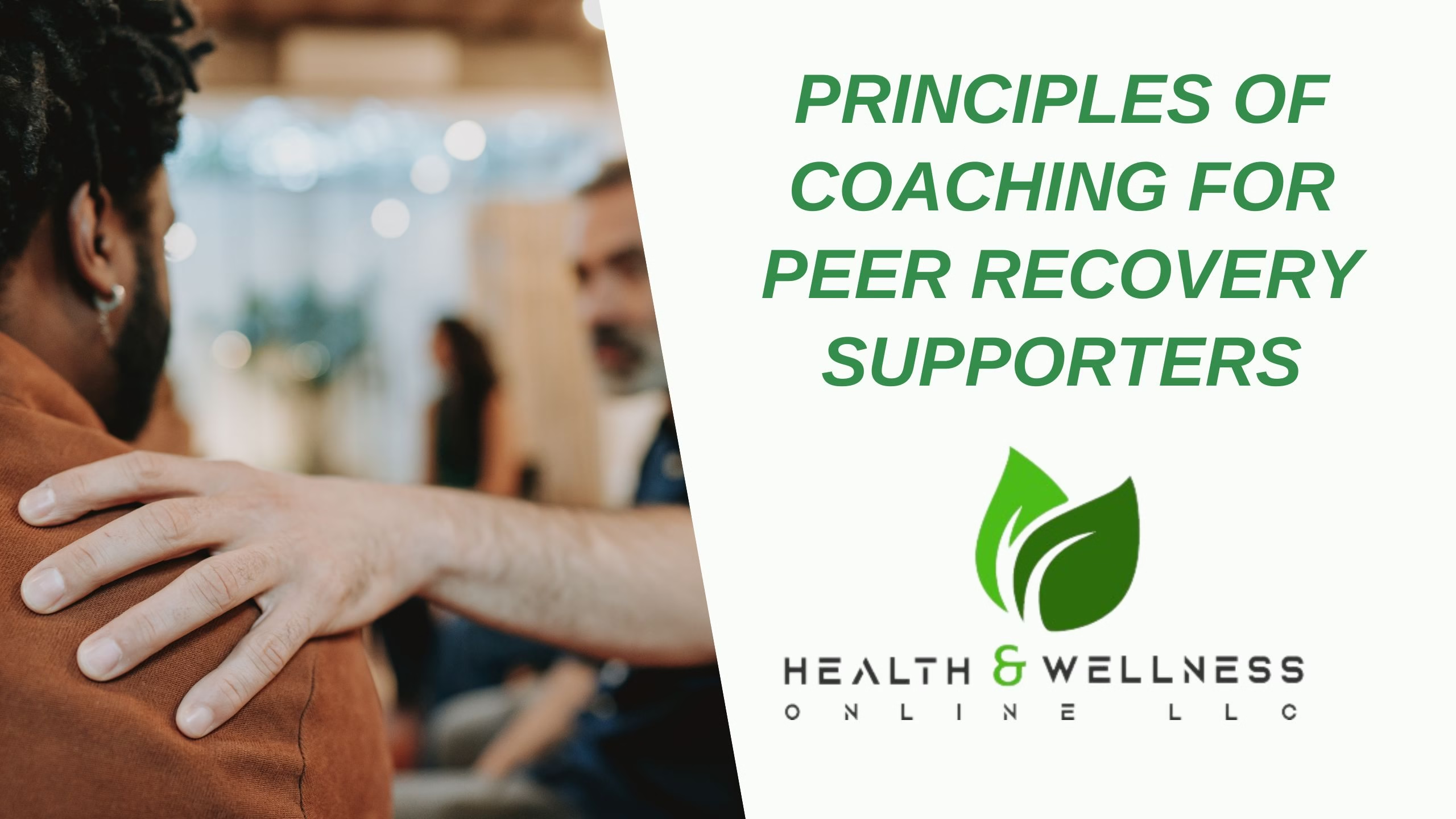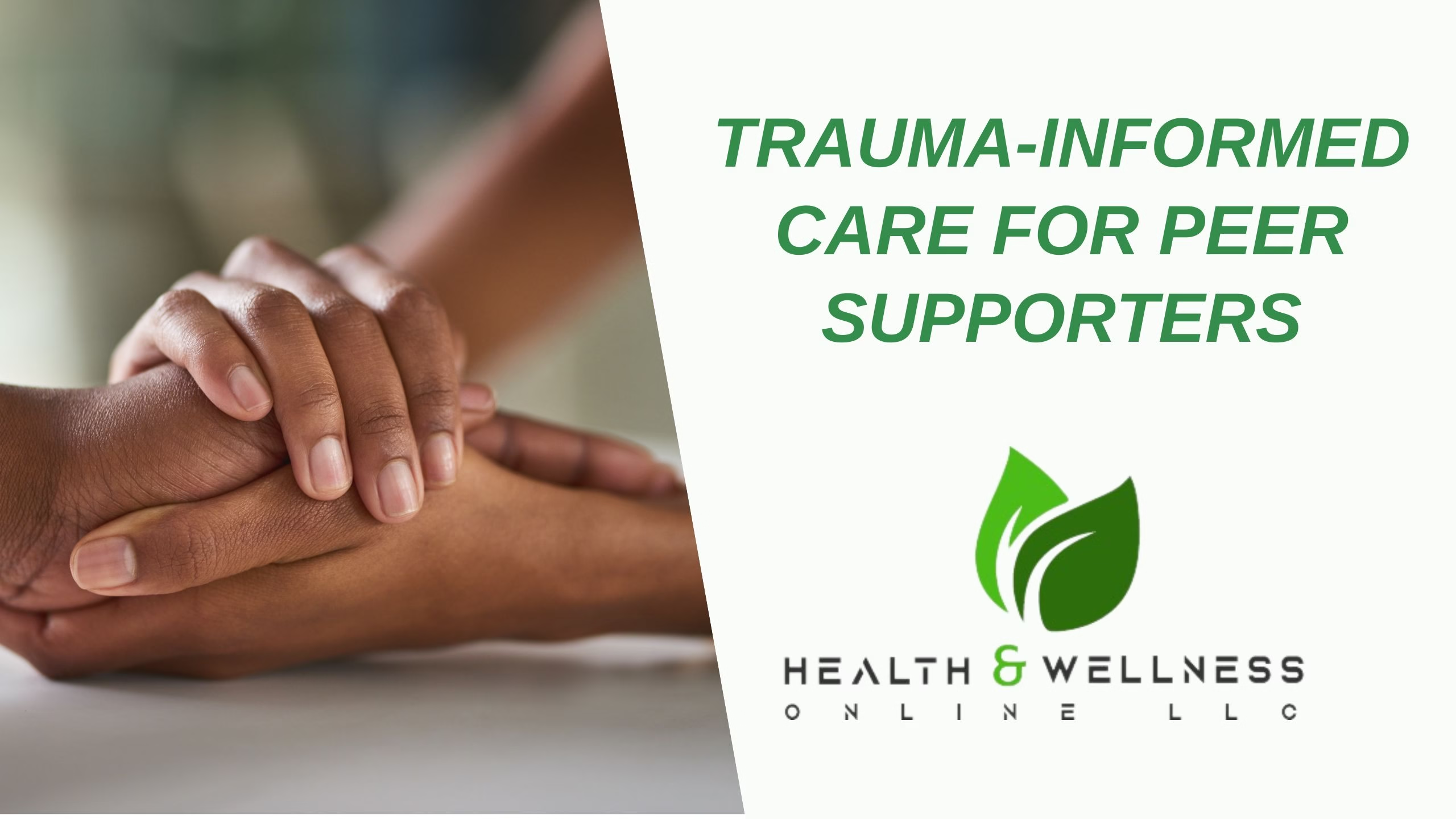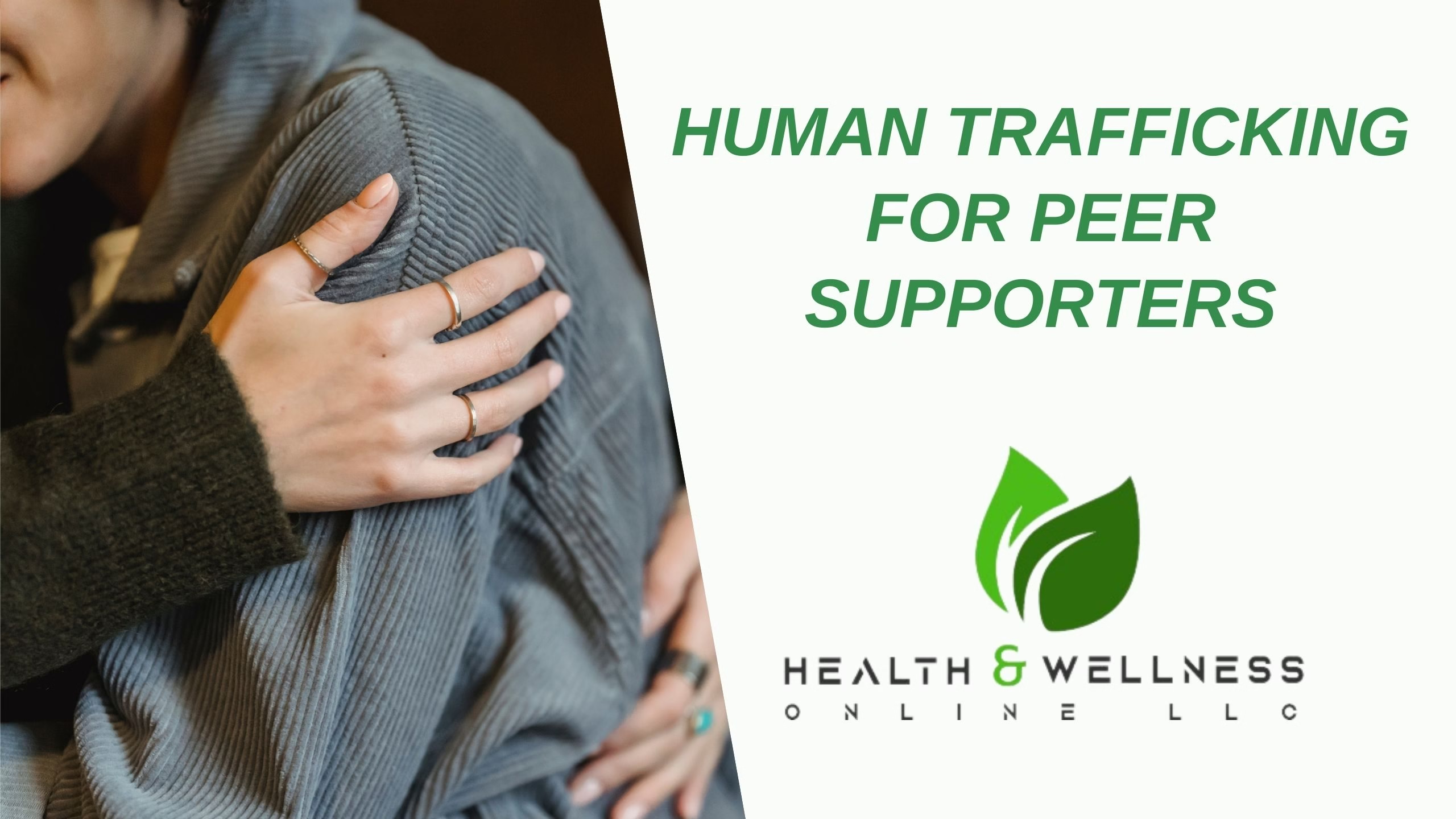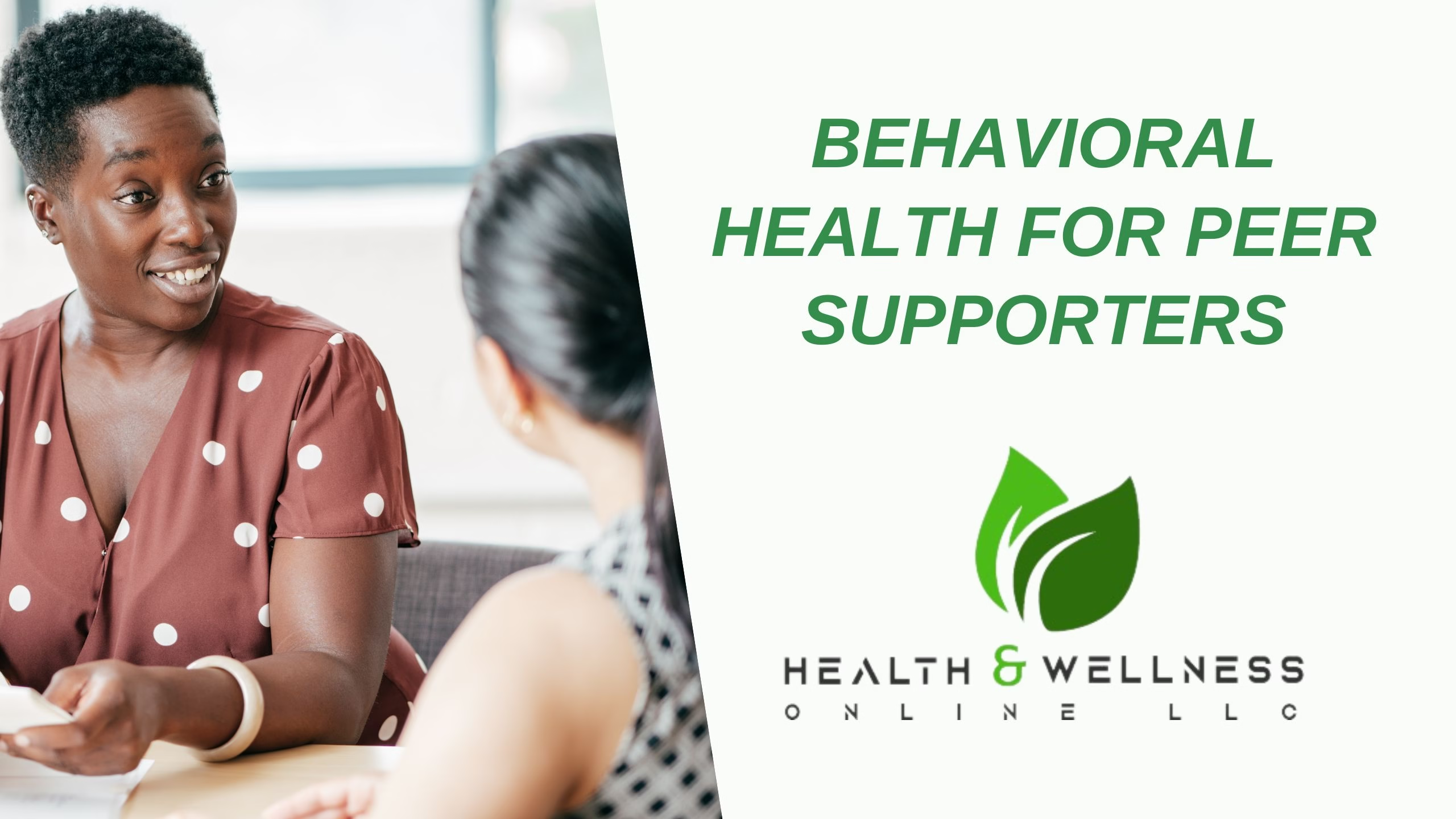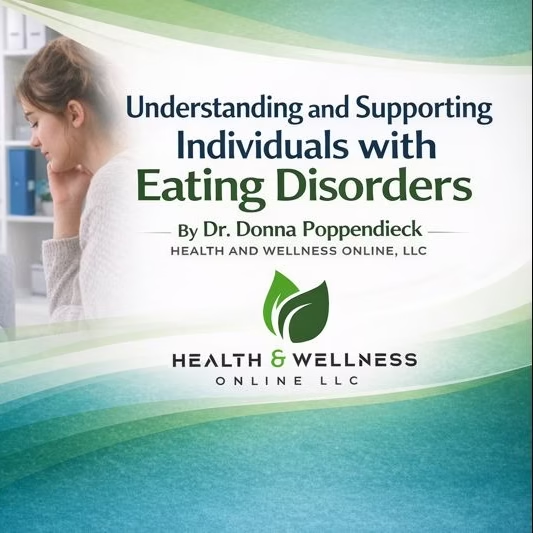Peer Support Professionals
All Courses for Peer Support Professionals
This bundle contains 12 courses providing 30 essential CE hours for Peer Support Professionals to renew their certification in peer recovery.
1 CE Credit Hour
$10
In this short, one-hour course, basic principles of health and wellness are presented. Included are one model of seven dimensions of wellbeing, and how to help people get healthy on a larger scale.
4 CE Credit Hours
$40
This course looks at multiple areas concerning the treatment , application, and effectiveness of amino acid therapy. These areas include a definition, how they help brain chemistry and specifically the detox process for recovering individuals, how they positively impact moods and work in tandem with talk therapy, whether they are more effective if taken in supplement form or by IV, whether they work better in combination with other supplements, and who uses these in treatment.
2 CE Credit Hours
$20
This course offers scholarly definitions of the terms diversity, equality/equity, and inclusion (DEI). SAMHSA’s key terms are presented, as well. Finally, benefits and challenges of diversity at the workplace are delineated.
3 CE Credit Hours
$30
This course examines what professional boundaries are, and why we need them. It also delves into the roles of peer recovery supporters, the core values, and the importance of self-awareness and self-care. There will be a short discussion on cultural diversity, and a partial review of the code of ethics and boundaries.
3 CE Credit Hours
$30
This course reviews the information contained in the Ohio Administrative Code (Rule 5122-29-15.1 Adult, Family, and Youth Certified Peer Supporter) and discusses HIPAA and confidentiality, specifically. It covers a need for ethics, more information contained in the Code, and a definition of ethical peer support. Also discussed are the benefits of peer support, as well as cultural competence.
4 CE Credit Hours
$40
This course explores scholarly definitions, statistics of prevalence, diagnostic terminology, symptoms, causes, risk factors, treatment approaches (both conventional and naturopathic), working integratively, connections between ADHD and addiction, and finally gives tips – some “do’s” and “don’ts” for seeing improvement in symptomology.
2 CE Credit Hours
$20
Traumas are experienced throughout the world every day. Yes, they are that common. As professionals who work with people who have experienced trauma, it is important to know and understand what they are going through. You, a unique individual who has likely gone through a fair amount of trauma yourself, will be able to show compassion and understanding while guiding your clients into a healthier perspective and how to get the help they need.
4 CE Credit Hours
$40
This course explores the science of well-being, based on Dr. Martin Seligman’s work in positive psychology. It gives a scholarly definition and discussion by professionals in the field as to what well-being is and outlines multiple dimensions of well-being.
6 CE Credit Hours
$60
This course discusses the benefits of movement, with a special focus on mental health. Included are physiological and cognitive/affective benefits. A section on benefits of movement for individuals recovering from addiction is included, as well as child and family physical health, self-care, lifestyle fitness and wellbeing, and finally, modalities of physical fitness to support an individual’s needs.
1.5 CE Credit Hours
$15
In this course, we look at a scholarly definition of heroin, explore statistics, and look at risk factors for drug use, across all age groups. A call for increased prevention efforts is included. We conclude with various treatment approaches.
1 CE Credit Hours
$10
As peer professionals, you likely come into contact regularly with victims of human trafficking. In fact, it may have happened to you, and yet you managed to overcome! Some groups who fall most vulnerable are undocumented immigrants, persons with disabilities, young runaways, the financially vulnerable, Native Americans, and many more (COPS, n.d.). This is not an all-inclusive listing. Let’s begin by defining exactly what human trafficking is.
1 CE Credit Hours
$10
Consider this: human beings have thoughts, emotions, a physiological body, and a spiritual self. So where does behavior fit in? Behavior may be thought of as the result of a person’s thoughts, feelings, physiology, and spirituality. They are at least contributing factors to the behaviors chosen. There are many things which influence the factors mentioned above, like our genes, how we’ve been raised, and others. Also, individuals who have been caught in the web of substance use, engaged in recovery, will be examined a little more closely in this course.
1 CE Credit Hours
$10
This course defines both system navigation and care coordination for peer recovery supporters. It delineates roles individuals may have in performing these services, benefits, and demonstrates through one study its effectiveness.
3 CE Credit Hours
$30
This course is designed to help mental health professionals:
– Define what heroin is.
– Describe the difference between opiates and opioids and their respective uses.
– List risk factors for drug use in children and adolescents.
– Describe protective factors in avoiding drug use in children and teens.
– Examine various aspects of conventional treatment approaches.
4 CE Credit Hours
$40
This course ties together cancer with nutrition and mental health. It defines cancer from authoritative sources and identifies several perspectives as to how people get cancer.
Three major treatment approaches are discussed – conventional, alternative/holistic, and integrative – bringing the two aforementioned categories together – seeking the best outcome for each individual.
2 CE Credit Hours
$20
This course ties together cancer with nutrition and mental health. It defines cancer from authoritative sources and identifies several perspectives as to how people get cancer.
Three major treatment approaches are discussed – conventional, alternative/holistic, and integrative – bringing the two aforementioned categories together – seeking the best outcome for each individual.
4 CE Credit Hours
$40
Learn about the endocannabinoid system, the potential health benefits and risks, as well as knowing what to look for when purchasing a CBD oil product that is safe to use (not brand related). Discover drugs that can interact with cannabis as well as potential risks.
3 CE Credit Hours
$30
Understanding and Supporting Individuals with Eating Disorders is a 3-credit course that explores the biological, psychological, social, and cultural factors behind eating disorders. Students learn to recognize warning signs, reduce stigma, and provide compassionate, trauma-informed support using evidence-based practices across educational, clinical, and community settings.



